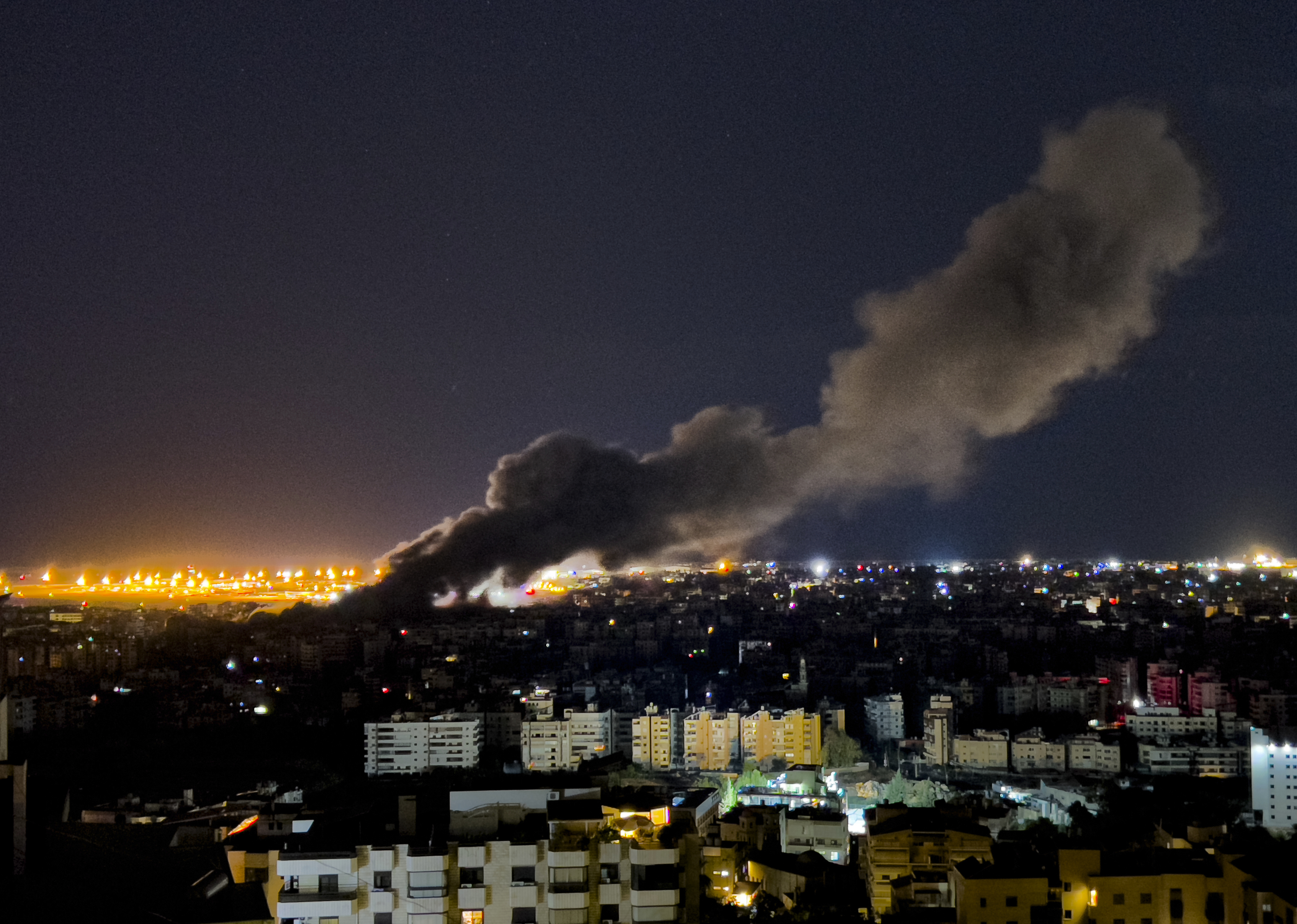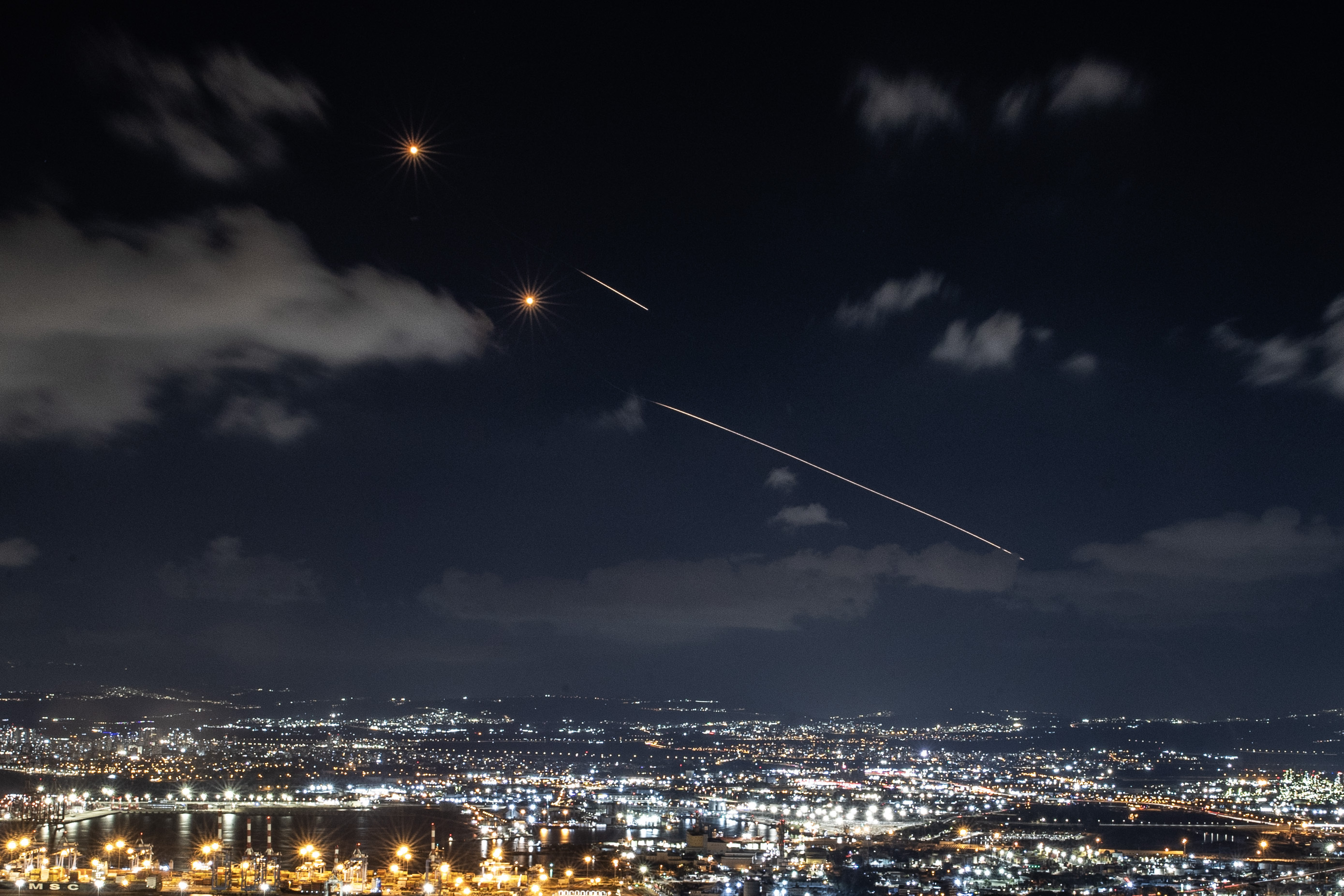A Chicago-area native currently residing in Tel Aviv, Israel, is describing her harrowing experience during an attack that saw at least 180 missiles launched from Iran earlier Tuesday on the country.
Iran’s attacks – which Israel largely deterred with its Iron Dome missile defense system, along with help from nearby U.S. naval destroyers – followed Israel’s killing of Hassan Nasrallah, the longtime leader of the Tehran-backed Lebanese militant group Hezbollah, on Sept. 27.
"I’ve been here through terror attacks, suicide bombs, Hamas attacks. So on one hand, the notion of attacks isn’t anything new, but tonight was truly terrifying," said Rebecca Gold, originally from Wilmette. "Buildings shaking, explosions in the sky, non stop sirens."
Approximately an hour prior to the attack, a mass shooting earlier in Tel Aviv that left six people dead and is believed to be an act of terror. Two suspects were killed.
"A crowded station in Tel Aviv. It's been quite the terrifying night for Israelis," Gold said.
Hezbollah has been sending rockets into northern Israel since the start of the Gaza war, which began after Hamas and other militants invaded Israel on Oct. 7, 2023, and killed nearly 1,200 people. Hezbollah’s rocket attacks have displaced around 70,000 people from their homes in northern Israel.
The Israel-Hezbollah conflict that has emerged over the past year has involved the use of Israeli special operations units, which have operated clandestinely in Lebanon in small groups since November 2023.
In addition, Israel has been accused by Hezbollah of conducting unconventional warfare operations – like the exploding walkie-talkies and pagers – and launched hundreds of air and missile strikes in Lebanon over the past few weeks. The combination of these operations has destroyed Hezbollah’s weapons caches and military infrastructure and killed several senior leaders in the group, including Hassan Nasrallah.
The human costs of these attacks is significant, as more than 1,000 people in Lebanon have died. Among this total, it is unclear how many of the dead or wounded are Hezbollah fighters.
Feeling out of the loop? We'll catch you up on the Chicago news you need to know. Sign up for the weekly> Chicago Catch-Up newsletter.
Synagogues around the U.S. ramped up security in wake of the attacks, with many wondering if the latest strikes could draw the U.S. further into the conflict.
The latest escalation in the conflict comes amid preparations for Rosh Hashanah among worldwide Jewish communities, as many set their tables for the two-day holiday beginning Wednesday.
"This is usually a sense of renewal and hope, everything we do and put on our table is symbolic of a new year and new beginning, the bread we eat every Friday usually braided. For this holiday, it’s wound to celebrate life," Alison Pure-Slovin of the Simon Wiesenthal Center said.
Several of Pure-Slovin's children and grandchildren are in Jerusalem and rushed into bomb shelters amid Iran's attack.
"We will celebrate but we will mourn. Many of us know soldiers being called into Lebanon. They will be away from their families," Pure-Slovin said.
Israel and Hezbollah last had a direct war in 2006, which lasted 34 days and killed over 1,500 people between Lebanese civilians and Hezbollah fighters. Since then, Israel and Hezbollah have been in a shadow war – but not with the same kind of intensity and daily pattern that we have seen in the post-Oct. 7 landscape.
"My worst fear is that we will spend another year without the innocent Israeli hostages who are currently in Gaza. Amidst all of this, they’re still not forgotten," Gold said.
What does Iran have to do with the conflict between Israel and Hezbollah?
Iran has said it fired the missiles into Israel as retaliation for attacks on Hezbollah, Hamas and the Iranian military.
A coalition of groups and organizations has now been labeled as Iran’s “Axis of Resistance.” Iran’s Supreme Leader, Ayatollah Khameini, and senior military commanders in the Islamic Revolutionary Guards Corps, or the IRGC, have issued unifying guidance to all the different elements, whether it is Hamas in the Gaza Strip, the Houthi rebels in Yemen, Hezbollah in Lebanon, or Shia militias in Iraq and Syria.
Before Oct. 7, 2023, all of these groups were ideologically opposed to Israel, to a degree. But they were also fighting their own conflicts and were not rallying around supporting Hamas. Now, they have all become more active around a common goal of destroying Israel.
Iran and Hezbollah, in particular, have a deep relationship, dating back to the Iranian Revolution in 1979 and the creation of the Islamic Republic of Iran.
In 1982, Israel invaded southern Lebanon in order to thwart cross-border attacks the Palestinian Liberation Organization and other Palestinian groups were launching into Israel. The newly formed Iranian IRGC sent advisers and trainers to southern Lebanon to work with like-minded Lebanese Shiite militants who were already fighting in Lebanon’s civil war. They wanted to fight against the Israeli military and elements of the multinational force comprised of U.S., French and other Western troops that were originally sent as peacekeepers to put an end to the fighting.
What security risks does this evolving conflict present for the US?
Looking at how Hezbollah demonstrated these capabilities over a 40-year stretch of time, and based now on how Israel has hit the militant group, it would not be a stretch to speculate that Hezbollah has ordered or is considering some kind of terrorist attack far outside the region – similar to what the group did in Argentina in 1992 and 1994. What that plot would like look, how many people would be involved, and the possible target of any such attack are not clear.
Hezbollah’s leaders have said that they blame Israel for the attacks on it. About a week before Nasrallah’s death, he said that Israel’s exploding pager and walkie-talkie operations in Lebanon were a “declaration of war” and the “the enemy had crossed all red lines.”
Since then, Hezbollah has remained defiant, in spite of the significant losses the group has sustained by Israel these past few weeks. Questions also remain about how Hezbollah’s leadership will likewise hold the U.S. responsible for Israel’s actions. And if so, would that mean a return to the type of terrorism that Hezbollah inflicted on U.S. interests in the region in the 1980s? As recent events have shown, the world is facing a dangerous and volatile security environment in the Middle East.



